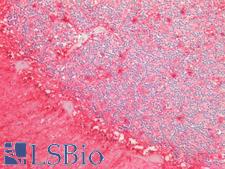Login
Registration enables users to use special features of this website, such as past
order histories, retained contact details for faster checkout, review submissions, and special promotions.
order histories, retained contact details for faster checkout, review submissions, and special promotions.
Forgot password?
Registration enables users to use special features of this website, such as past
order histories, retained contact details for faster checkout, review submissions, and special promotions.
order histories, retained contact details for faster checkout, review submissions, and special promotions.
Quick Order
Products
Antibodies
ELISA and Assay Kits
Research Areas
Infectious Disease
Resources
Purchasing
Reference Material
Contact Us
Location
Corporate Headquarters
Vector Laboratories, Inc.
6737 Mowry Ave
Newark, CA 94560
United States
Telephone Numbers
Customer Service: (800) 227-6666 / (650) 697-3600
Contact Us
Additional Contact Details
Login
Registration enables users to use special features of this website, such as past
order histories, retained contact details for faster checkout, review submissions, and special promotions.
order histories, retained contact details for faster checkout, review submissions, and special promotions.
Forgot password?
Registration enables users to use special features of this website, such as past
order histories, retained contact details for faster checkout, review submissions, and special promotions.
order histories, retained contact details for faster checkout, review submissions, and special promotions.
Quick Order
PathPlusTM S100 Protein Antibodies
S100 proteins are low-molecular-weight, calcium-binding proteins with a broad range of functions that include regulating apoptosis, proliferation, migration, energy metabolism and inflammation. In immunohistochemistry, general S100 antibodies are used as myoepithelial cell markers, and are positive in schwann cells, neurons, glial cells, adipocytes, melanocytes, dendritic cells and chrondrocytes. They are used to identify tumors with myoepithelial cells, and are also useful for diagnosing tumors of unknown origin. They help illustrate nerve sheath involvement of tumors, and they can be used to distinguish benign nerve sheath tumors, which are strongly positive, from malignant peripheral nerve sheath tumors, which are generally negative or weak for S100. Among cancers, they are positive in melanomas, soft tissue clear cell sarcomas, histiocytic tumors, myoepithelial tumors and glial tumors. In immunohistochemistry, S100 antibodies have cytoplasmic and nuclear positivity.
References: Am J Surg Pathol 2005;29:1042, PMID: 16006798; Front. Immunol. 8:1908. doi: 10.3389/fimmu.2017.01908; Curr Mol Med. 2013 Jan;13(1):24-57, PMID: 22834835
1 PathPlusTM Antibody

☰ Filters
Products
Antibodies
(1)
Type
Primary
(1)
Target
S100 Protein
(1)
Reactivity
Bovine
(1)
Application
IHC-Fr
(1)
IHC-P
(1)
Host
mouse
(1)
Product Group
PathPlus Cancer
(1)
PathPlus Cancer Pathology
(1)
Isotype
IgG2a
(1)
Clonality
monoclonal mc
(1)
Clone
4C4.9
(1)
Format
Unconjugated
(1)
Publications
No
(1)

Cancer Pathology
Cancer
S100 Protein Mouse anti-Bovine Monoclonal (4C4.9) Antibody
Bovine
IHC-Fr, IHC-P
Unconjugated
0.05 ml/$375
Viewing 1-1
of 1
product results











